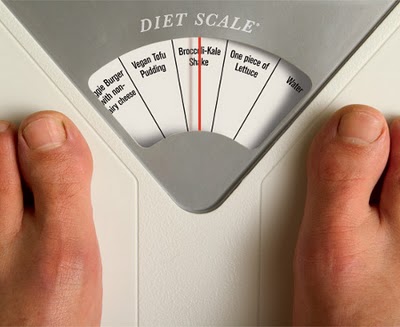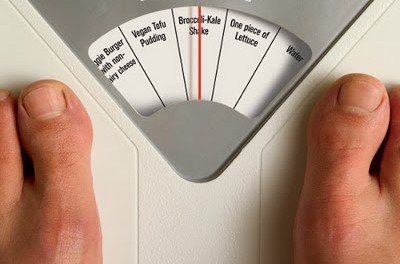“Every little bit doesn’t really count”–The MUCH longer version
 I wrote an article for Fitocracy a few months ago titled, “Every little bit doesn’t really count.” When I write for my own blog, I don’t pay attention (much) to length. But when writing for someone else’s audience, I tend to think that most people won’t tolerate my typical length. Most of my blog posts are quite long in comparison to a lot of fitness bloggers, or even science bloggers. However, a lot of comments I got back from the Fitocracy piece suggested to me that 1) Readers will tolerate longer posts and 2) In my attempt to keep things short, I missed the boat in adequately delivering my message. Here’s the longer version. I’m not entirely convinced it’s much better than a short version or that it will piss less people off, but pushing the “Publish” button is, in the balance, probably better than sitting on the article.
I wrote an article for Fitocracy a few months ago titled, “Every little bit doesn’t really count.” When I write for my own blog, I don’t pay attention (much) to length. But when writing for someone else’s audience, I tend to think that most people won’t tolerate my typical length. Most of my blog posts are quite long in comparison to a lot of fitness bloggers, or even science bloggers. However, a lot of comments I got back from the Fitocracy piece suggested to me that 1) Readers will tolerate longer posts and 2) In my attempt to keep things short, I missed the boat in adequately delivering my message. Here’s the longer version. I’m not entirely convinced it’s much better than a short version or that it will piss less people off, but pushing the “Publish” button is, in the balance, probably better than sitting on the article.
My thoughts on the “every little bit counts” mindset remain basically unchanged. There were lots of comments about busy lives and raising children, as well as taking stairs and parking farther. I’ve written about goal-setting before, but this issue is slightly different. Winning your personal war involves multiple steps, and you can lose the war in any of these places by allowing yourself to believe that every little bit counts. Read More...
You are going to die.

So there’s been ANOTHER study on some food and mortality. Last time, it was red meat. This time, it’s eggs. To be honest, I’m not even going to read it. (Ok, I lied. I read it. Who are we kidding?) It’s not the first study on eggs. It won’t be the last. And it definitely won’t be the last study of its kind in terms of trying to link what is really a very small part of life to mortality.
Being in medicine (yes, even in plastic surgery) has taught me a lot of thing, but one sure-fire experience is death, and dying. Most people in our society get very limited exposure to death, and fewer to dying. Most of us will only experience death when family members or friends die, which hopefully isn’t that frequent. Very few people have experienced dying–not many people sit with the dying anymore (in my experience). Some of us will personally face death prematurely, but recover, which may or may not change our view on life. Read More...
You don’t add higher octane gas to the house that’s on fire to put it out.

The World Health Organization’s definition of health, which I had to memorize in the first month of medical school, is, “The state of complete physical, mental and social well-being and not merely the absence of disease or infirmity.”
Personally, I think this is ridiculous because it’s basically tautological. The term “well-being” is essentially synonymous with “health”. In fact, the Merriam-Webster dictionary defines “well-being” as, “The state of being happy, healthy or prosperous.” Way to go, 1948 WHO’er’s. It’s like looking in the dictionary for the definition of “happy” and seeing “not sad” and then looking up “sad” and seeing its definition as “not happy.” (Flashbacks to being the child of immigrant parents inserted here. And yes, I was a weird kid and yes, my parents will tell you that.) Read More...
Screwed if you do, screwed if you don’t: People don’t want to read what they don’t want to hear

This WOULD be a catastrophe. This week, I was asked to write a commentary for Fitocracy on what has now become known as the “Red Meat Will Kill You” Study. The fallout in the blogosphere has been pretty dramatic (and by dramatic, I mean drama-filled and theatrical). There have been a few well-written, thoughtful commentaries, but by far, the bulk of criticism has been the general “correlation, not causation” crowd. While I think this is, by and large, a HYUGE step forward in general research literacy, it also makes me wonder if it’s just another sign of polarized, blinded thinking.
There is a fundamental difficulty with measuring long-term outcomes that are distantly removed from single-point events, and continuous repeated exposures. The three mainstream ways to get at the question of, “Does X make you live longer/shorter?” are: Read More...
Burn the boats: Why you’re going to fail. Or not.
 I’ve been studying and reading health research for decades, and this post is just a bit of my biased gestalt on the state of affairs on obesity, obesity research and the new hope that arises within a TON of people every January.
I’ve been studying and reading health research for decades, and this post is just a bit of my biased gestalt on the state of affairs on obesity, obesity research and the new hope that arises within a TON of people every January.
The preponderance of obesity research indicates that most of you will fail at achieving your goal of weight loss this year; and that of those of you who succeed at achieving the goal within this particular year will ultimately fail because the data generally shows that the weight comes back, resulting in a net effect of zero. What we don’t fully understand still, is why this failure happens; and I’m not sure that we’re going to truly unearth it anytime soon enough to make a difference in your resolution this year. Read More...
Fitness, nutrition and a Peruvian fruit stall
 I’m in Peru right now on a volunteer hand surgery assignment. I arrived here about a week ago and when I went to the grocery store the day after I landed to stock up on some supplies, I noticed things in the store that were familiar and things that weren’t so familiar.
I’m in Peru right now on a volunteer hand surgery assignment. I arrived here about a week ago and when I went to the grocery store the day after I landed to stock up on some supplies, I noticed things in the store that were familiar and things that weren’t so familiar.
In an effort to ensure I wasn’t going to get scurvy, I felt like I had to buy some fruit. There were oranges and pineapples and mangos and papayas, but I also wanted something portable that I wouldn’t have to peel or cut or scoop. So I opted for apples. I speak very little Spanish, so asking the clerks in the store about each fruit, its taste, how to eat or prepare it wasn’t really an option. Read More...
Restriction: It’s not just for calories
 I’m sitting in the Newark airport and having a sandwich at the Earl of Sandwich (it’s the only place I can sit down here, it seems). There was a sign as I came up the ramp for “PI” stating that “He’s a child isn’t a diagnosis”, implying that your child’s cold could be a sign of “PI”. As I’m sitting here eating this club sandwich, there’s another sign outside the restaurant also for “PI” or “Primary Immunodeficiency”.
I’m sitting in the Newark airport and having a sandwich at the Earl of Sandwich (it’s the only place I can sit down here, it seems). There was a sign as I came up the ramp for “PI” stating that “He’s a child isn’t a diagnosis”, implying that your child’s cold could be a sign of “PI”. As I’m sitting here eating this club sandwich, there’s another sign outside the restaurant also for “PI” or “Primary Immunodeficiency”.
Primary immunodeficiency is a condition that affects (at best estimate) about 1 in 100 000 births. There are at least 5000 people that see that sign every day. Of those 5000 people, a much lower number of them will have children and even lower still, the number of those individuals who have a child less than 1 year old. In 20 days (almost a month), that sign would be applicable to a single individual if they were all infants under the age of 1. How many days would it take to pick up one case of PI? Probably more than 6 months to a year. Important? Yes. Because PI or SCID (Severe combined immunodeficiency) can result in DEATH before the age of one year if untreated. Read More...
The Information Diet
 The New Year season is full of resolutions to diet for weight loss. It’s also one of the most fruitful seasons for merchants who produce weight-loss products to add to their bottom line. They’re easy to find and getting more and more clever with each passing year. They’re on Google Ads, banner ads, Facebook, Twitter, youTube, and infiltrate virtually every other on-line media you use on a daily basis.
The New Year season is full of resolutions to diet for weight loss. It’s also one of the most fruitful seasons for merchants who produce weight-loss products to add to their bottom line. They’re easy to find and getting more and more clever with each passing year. They’re on Google Ads, banner ads, Facebook, Twitter, youTube, and infiltrate virtually every other on-line media you use on a daily basis.
This easily leads to information overload, as well as fear-based marketing: How do you choose from all of the products available? How do you sift through the inundating assault of those massively lengthy webpages that have PARAGRAPHS of text and testimonials? And worse yet, how do you know that one of those products isn’t better than the one you’re going to buy? Read More...
Defending yourself against decision overload
 It’s 2011, and a new year for the ongoing onslaught of infomercials, internet promises and magazine gimmicks competing for your attention.
It’s 2011, and a new year for the ongoing onslaught of infomercials, internet promises and magazine gimmicks competing for your attention.
A friend of mine once told me, “The most expensive clothes you’ll ever buy are the ones you never wear.” The same goes for diet programs, online e-books, and new (or just re-branded) products. Most people don’t buy new clothes thinking they’ll never wear them. Likewise, most people don’t buy new fitness products thinking they’ll never use them. Read More...
Death by sand–when do fine details matter?
There are many iterations to the famous story about some guy who fills a large jar with big rocks and asks other people if they think the jar is full. They inevitably say, “Yes” and then he puts pebbles into the jar that fall in the spaces between the rocks and asks the same question for the same answer. He then pours sand into the jar that fills all the space between the pebbles and the rocks. Same question, same answer. And then he pours a liquid (water or beer) into the jar, the moral of the story in my favorite version being, “No matter how full your life is, there’s always room for a beer.”
The very fact that you are reading this means that you are a person who is looking to improve yourself. Maybe you’re not quite started yet, or maybe you’ve been well on your way for many years; or maybe you’re trying to help other people. Read More...
